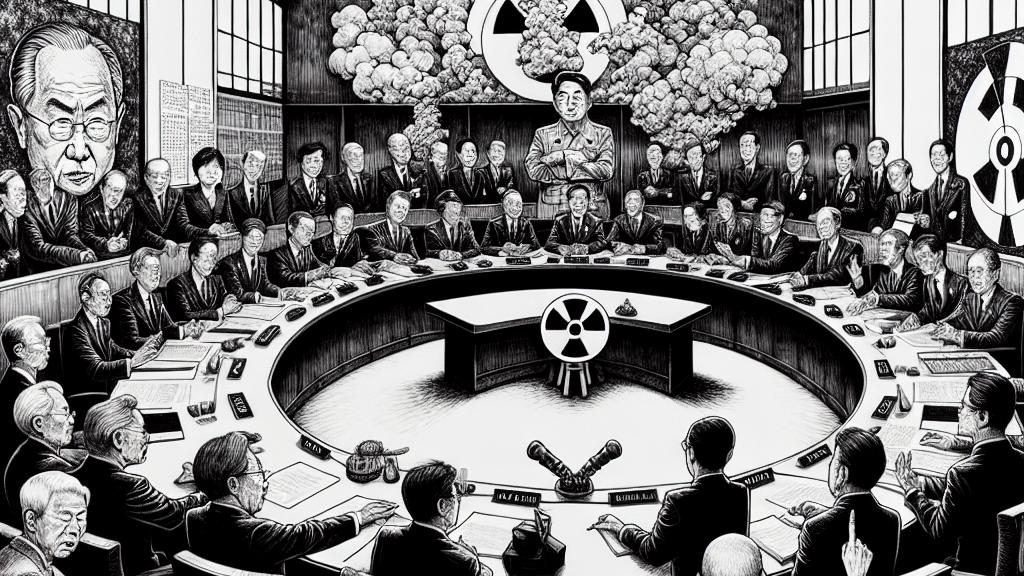Exploring Japan's Diplomatic Future: Nuclear Policy and Regional Alliances
Overview
- Japan is at a crossroads as candidates present opposing visions for its foreign policy.
- Proposals like hosting US nuclear weapons and forming an 'Asian NATO' spark heated debates.
- The outcome will significantly influence Japan's role in a volatile Indo-Pacific landscape.

Japan's Political Landscape
As Japan approaches the pivotal prime ministerial election, the atmosphere buzzes with anticipation and concern. With candidates stepping forward, each presents a distinct vision for how Japan should navigate its complex relationships with neighboring countries. For instance, some advocate a considerable shift towards military preparedness, suggesting Japan reconsider its historic pacifism in light of rising threats. This idea is not casual; discussions include potentially acquiring nuclear capabilities—a notion that evokes haunting memories of Hiroshima and Nagasaki. Yet, this election will not only determine the future policies of Japan, but it may also set the tone for how the nation interacts with global powers, especially in an increasingly unstable region.
The Controversy of Nuclear Armament
The debate surrounding nuclear armament encapsulates a profound division within the Japanese populace. On one hand, certain candidates argue that hosting American nuclear weapons could provide a vital deterrent against adversaries like China and North Korea, bolstering national security significantly. However, such a move is fraught with complications. The historical context of nuclear warfare in Japan raises serious ethical questions about the acceptance of nuclear arms and the potential for escalating an arms race in East Asia. Many experts warn that this could provoke rather than protect, intensifying regional tensions and eroding diplomatic relationships that have been carefully cultivated over decades. This complex landscape creates a challenging situation for Japan's future leaders as they weigh the hard realities of international relations against the strong moral imperatives of their past.
The Idea of an 'Asian NATO'
The discussion surrounding the proposed 'Asian NATO' is vibrant and multifaceted. Advocates like Shigeru Ishiba argue it could serve as an essential framework for collective security, much like NATO does in Europe. The idea is compelling—imagine nations in the Indo-Pacific coming together for mutual defense against common threats! Yet, palpable skepticism surrounds this proposal. Asia is characterized by diverse political landscapes, cultures, and histories, making consensus difficult. For example, how can countries like India with its own strategic interests align with Southeast Asian nations that might have different priorities? Without a solid agreement, critics caution that this alliance could fragment, leading to discord rather than unity. Ultimately, who Japan chooses to lead will profoundly shape not only their future but also the stability and harmony of the entire Indo-Pacific region.

Loading...